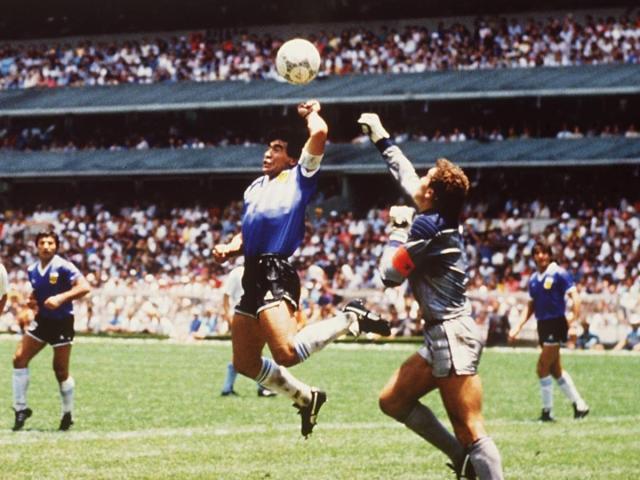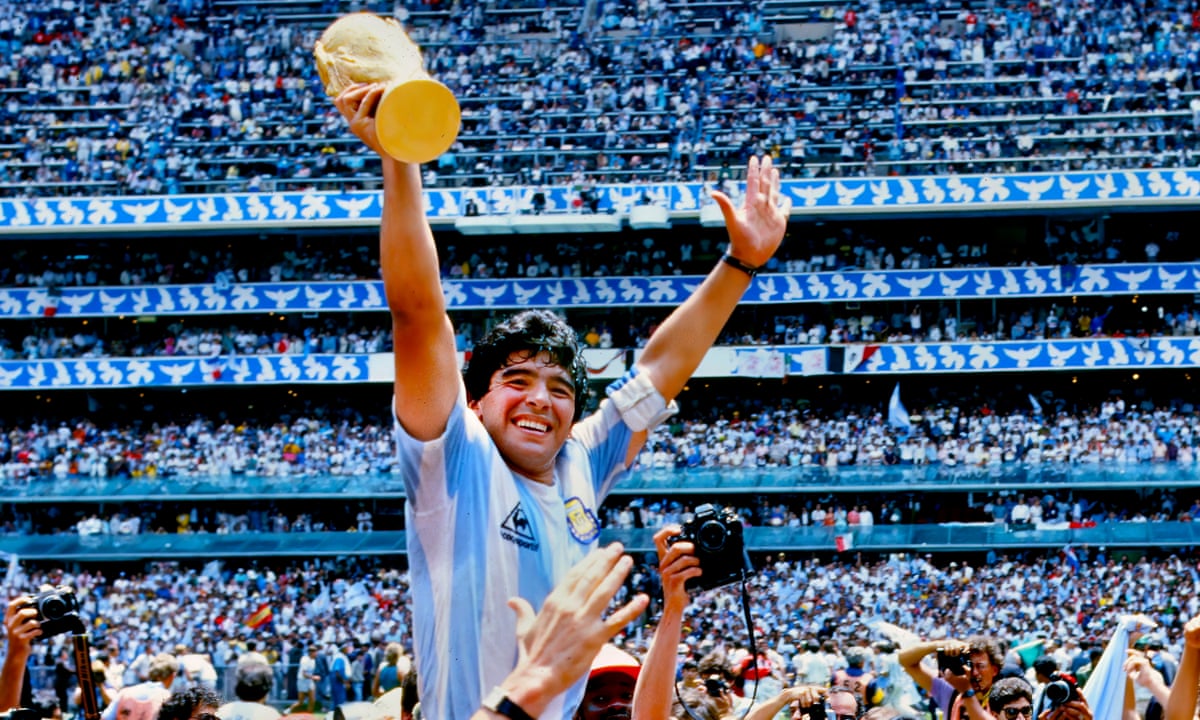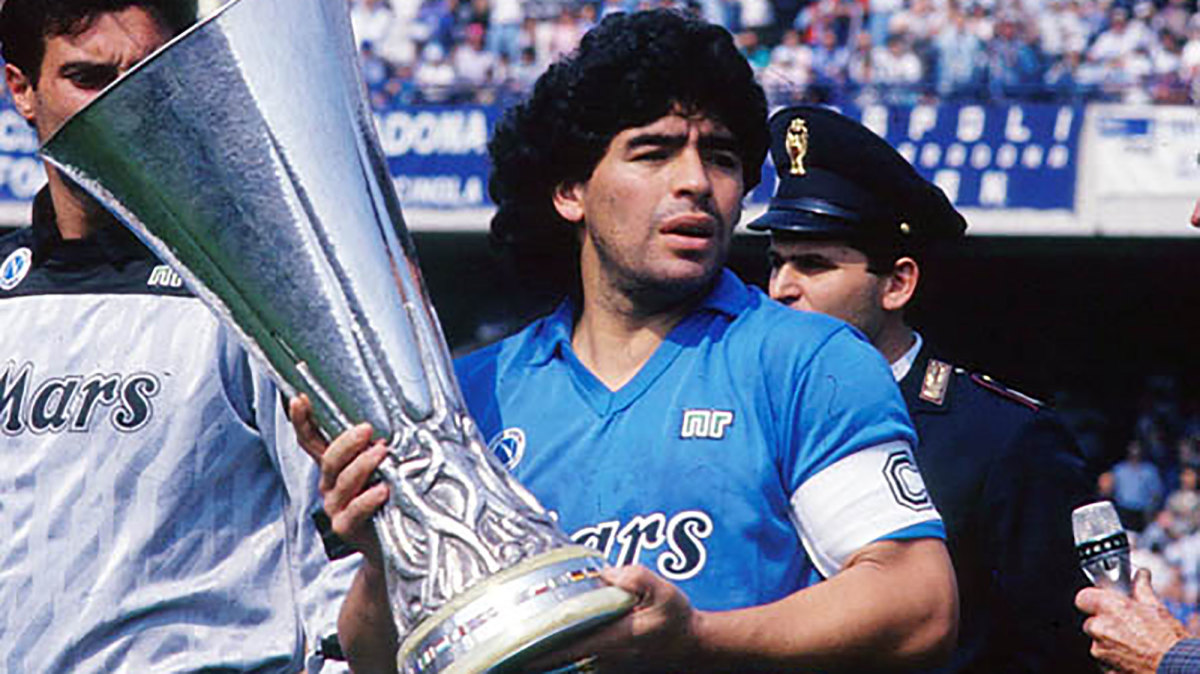Diego Armando Maradona: A Legendary Odyssey Through Life
In the sprawling suburbs of Buenos Aires, nestled amidst the dust and dreams, a young boy named Diego Armando Maradona was born on October 30, 1960. His early life unfolded in the vibrant and tumultuous neighborhood of Villa Fiorito. It was a place where the rhythm of life was set to the beats of football, where dreams took flight on makeshift pitches, and where Maradona's destiny was quietly being shaped.
Diego's father, Don Diego Maradona Sr., recognized his son's raw talent from an early age. The boy's innate ability to control the ball, to make it dance to his will, was evident even as he kicked around a worn-out football on the uneven streets. It was in these moments of unstructured play that the foundations of Maradona's future prowess were laid.
The Prodigy Emerges
As the years passed, it became clear that Diego was no ordinary child. His street football days were soon followed by organized matches with local teams. At the tender age of eight, he donned the jersey of Los Cebollitas, a youth team associated with Argentinos Juniors. It was here that his virtuosity began to attract attention beyond the neighborhood.
Even against older opponents, Diego's dribbling became a spectacle to behold. He weaved through defenders with a grace that seemed almost supernatural. The ball seemed glued to his feet, a testament to his hours of relentless practice on the unpaved grounds of Villa Fiorito. He was a phenomenon in the making, and the world was taking notice.
The Journey to Stardom
By the time he was just 15, Maradona was making his debut for Argentinos Juniors' senior team. The young prodigy's rise was meteoric. Scouts from larger clubs began to circle, sensing the rare gem in their midst. It was clear that Maradona's destiny was interwoven with the grand tapestry of football history.
In 1979, Maradona earned his first cap for the Argentine national team. He was the youngest player ever to represent the nation at that level, a testament to his exceptional abilities. The world was beginning to understand that a footballing colossus had emerged from the streets of Villa Fiorito, ready to leave an indelible mark.
Triumph and Turmoil on the World Stage
 |
| the Infamous "HAND OF GOD" By Maradona |
The 1982 FIFA World Cup in Spain marked Maradona's debut on the global stage. However, the tournament ended in disappointment for Argentina as they were eliminated in the second group stage. Yet, this was just the prelude to the symphony of brilliance that was to follow.
Four years later, at the 1986 World Cup in Mexico, Maradona transcended the boundaries of sport and became a living legend. The quarterfinal match against England showcased his duality: the audacious "Hand of God" (Spanish: La mano de Dios) goal followed by the breathtaking "Goal of the Century." These moments became iconic, etching his name in the annals of football lore.
A European Odyssey
Maradona's exploits at the international level drew the attention of European giants, and in 1984, he signed with Napoli, a club in need of revival. His arrival was transformative. Under his leadership, Napoli secured their first Serie A title in 1987, ending the hegemony of traditional powerhouses. Maradona's influence extended beyond the pitch; he became a symbol of hope for a city longing for glory.
Yet, his time in Italy was not without its challenges. Maradona's personal life was marked by struggles with addiction and controversies that cast shadows over his brilliance. Despite the turmoil, he continued to be a magician on the field, guiding Napoli to their second Serie A title in 1990 and UEFA Cup victory.
The Legacy Lives On
Maradona's legacy extended far beyond his playing days. He was not merely a footballer; he was a cultural icon. His charisma, his audacity, and his unique style of play left an indelible imprint on the hearts of fans across the globe. His impact went beyond football stadiums; he became a symbol of resilience and audacity, inspiring millions who saw in him the embodiment of the human spirit's triumph over adversity.
As he transitioned into coaching and mentorship roles, Maradona continued to inspire new generations of footballers. He imparted not only technical wisdom but also life lessons drawn from his own experiences.
The Final Whistle
On November 25, 2020, the world mourned as news spread of Maradona's untimely passing at the age of 60. Tributes poured in from every corner of the world, a testament to the universal impact of his journey. The boy from Villa Fiorito had journeyed through life, leaving an indelible mark on football and humanity.
Epilogue: The Legend Lives Forever
Diego Armando Maradona's life was a symphony of triumphs and tribulations, of moments that defied imagination and challenges that tested the human spirit. From the streets of Villa Fiorito to the grandeur of World Cups and European stadiums, his journey was a testament to the power of raw talent, perseverance, and the human capacity to rise above circumstances.
His story reminds us that heroes are not flawless; they are complex, flawed, and human. And it is in these imperfections that their greatness shines even brighter. Maradona's legacy lives on, not only in the records he set but in the hearts of those who saw him play, who felt the magic in his every touch of the ball. His story is a reminder that the game of football is not just about goals and victories; it's about the stories that unfold on the journey, stories that captivate us and remind us of our shared humanity.







Comments
Post a Comment